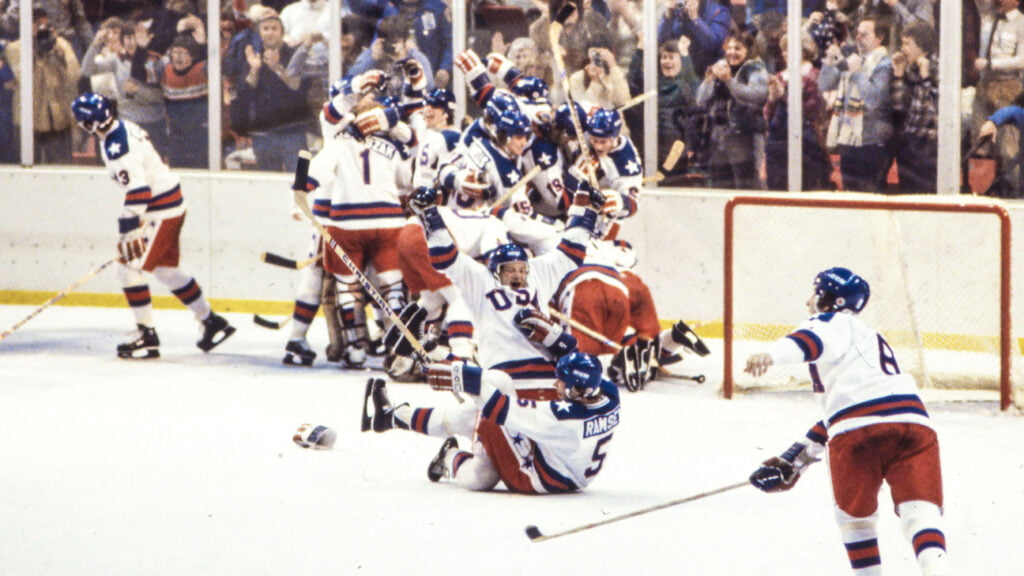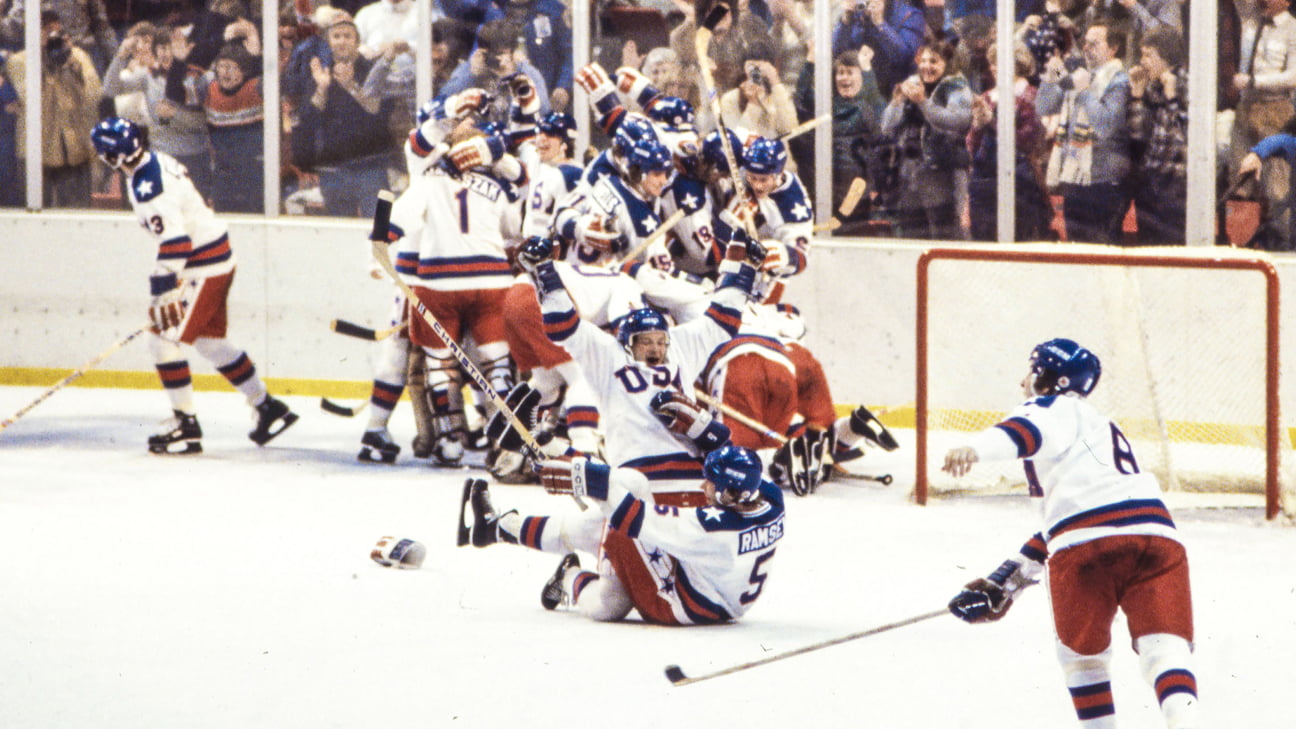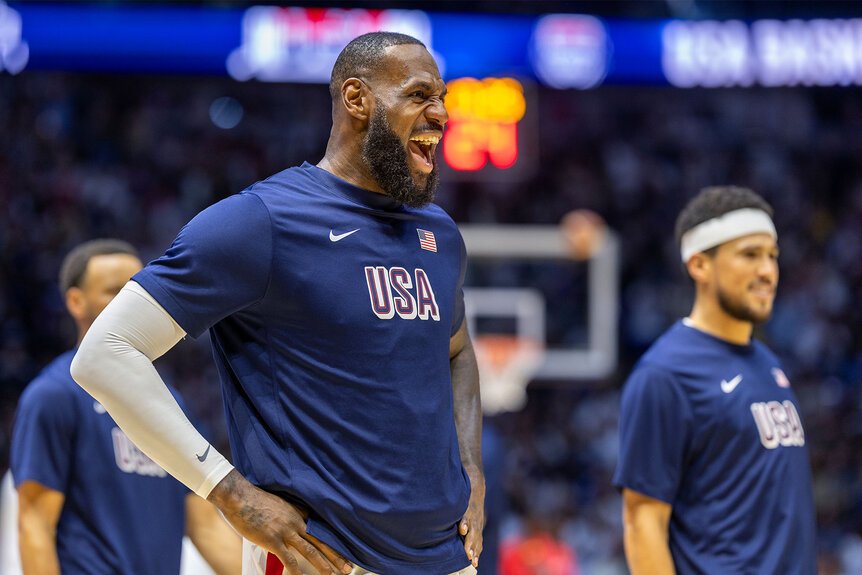Today in sports history (1980), the Miracle on Ice took place in Lake Placid, New York during the 1980 Winter Olympics. If you are somehow unfamiliar with what is widely accepted as the most celebrated and unexpected victory in U.S. sports history, read on and learn about the greatest underdog story of all time.
What Made “Miracle on Ice” so Special?
As has been said more than a few times over the last 42 years, the Miracle on Ice was not just a hockey game. In the year 1980, tensions between the United States and the then-Soviet Union were at an all-time high. Beyond just the Cold War implications and the constant unrest caused by the Soviets around the world, their hockey team was very good. Exceptionally good. It cannot be understated how dominant they were.
This, of course, did not just come randomly and happen to line up with the formation of the 1980 U.S. Olympic team under head coach Herb Brooks. The Soviets had been dominating the world hockey scene after their first Gold Medal in 1952. They went on to win Gold at five of the next six Olympic games, defeating NHL All-Star teams many years in a row along the way.
The U.S. Men’s Hockey team had won just one single Gold Medal in their history up to that point, and the group of players hand-selected by Brooks were considered a rag-tag, heavily underdog group who had severely underperformed in the months leading up to the 1980 Olympics, including a 10-3 blowout loss to the Soviets in front of a sold-out Madison Square Garden crowd just a hand full of days before the Olympic Opening Ceremonies.
No one outside of Brooks and his players believed they could win the next time they met. However, the entire world was backing the United States at that point, putting unimaginable pressure on the team.
Who Was Herb Brooks?
The movie Miracle is one of the greatest sports films of all time. Beyond the incredible true story, the casting was perfect and the film’s quote-ability is amongst the best in history. The movie tells the story of the team and their journey to Gold, but at the same time it tells just as deep of a story about Herb Brooks, who he was as a person and his immense love for the game of hockey.
At the time he was hired, Brooks was the head coach at the University of Minnesota, where he led the Gophers to great success including four NCAA National Championship appearances in just seven years. They were able to win three of them.
He was highly respected amongst the college ranks, but not many had faith he’d be able to see the same success on the world stage. Team USA had been struggling mightily on the Olympic stage, with just one medal in the previous 12 years. So, after a few other coaches turned down the job, Herb Brooks was hired and went to work assembling his team.
There was another element to the Olympics for Brooks though. Many casual fans probably do not know this, but back then, roughly 28 skaters would start out having made the team, while the coaches were responsible for whittling that number down to a final roster of 20 to be submitted before the Olympic Games begin. This already difficult task would prove to be even more emotionally taxing for Herb Brooks, as he was the 21st member of the 1960 roster. In other words, he was the last man to be sent home and after many months of intense practice and training, he had to watch the team he was just a member of go on to win a Gold Medal. The only one in United States history up to that point.

Solidifying the Gold Medal | 1980 Olympics
There is another element to these 1980 Olympics that people might not fully understand. Unlike today’s Games, which are set up in tournament bracket style where you win and advance to take on the other team who won and so on, the Medal Round schedule had already been pre-determined and would not have changed despite the outcome of the USA vs. Soviets game.
The system was based on points, which were earned through victories, ties and losses, and the USA just so happened to be slated to play the Soviets first.
While the story and the game were cool enough in themselves, the impact may have been remembered differently four decades later if the United States had not gone on to solidify the Gold. In the ultimate let down spot, the U.S. Men still had to play against Finland in the days after the Miracle victory. If the United States had lost the game to Finland, not only would the USA have potentially dropped to the Bronze Medal position, but the Soviets would have still been Gold Medal Champions, as they owned the tiebreakers over every other team.
With just 20 minutes left in their Olympic adventure, the United States trailed Finland 2-1 after two periods. Thankfully, they rose to the occasion and found a way to score three unanswered goals in the third period, leading to a 4-2 victory and sealing an unexpected, hard-earned and well-deserved gold medal.
Miracle on Ice Impact Today
The fact that the Miracle on Ice is still heavily celebrated today speaks volumes as to how impactful of a victory it truly was. There is hardly a hockey player on earth who will not tell you Miracle is their favorite movie and leaves you with nerves, goosebumps, motivation and inspiration every single time you watch it.
Whether it’s the movie footage or the real footage, Al Michael’s legendary “Do you believe in miracles” call will leave you watching in awe time after time, year after year.
There may never be such a meaningful game again in our country’s history.

Follow us on all of our social channels! Check out our Twitter, Facebook, YouTube and TikTok for more great FlurrySports content.






